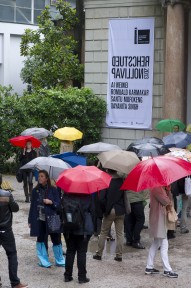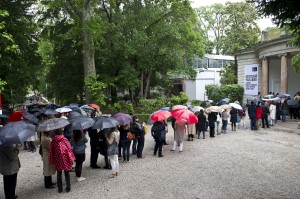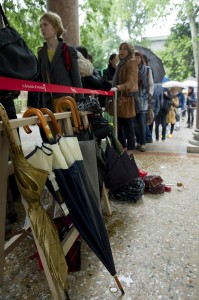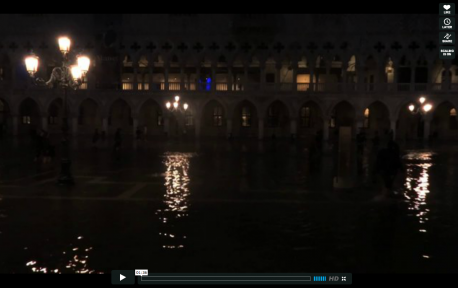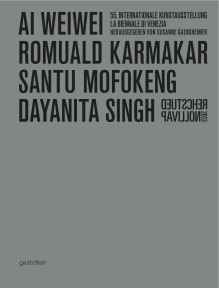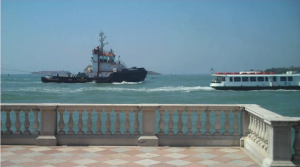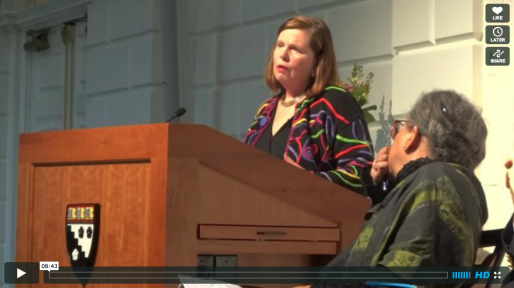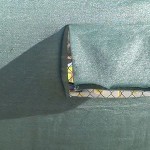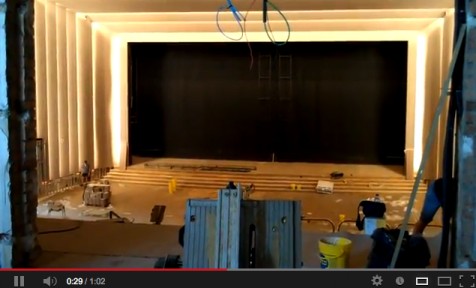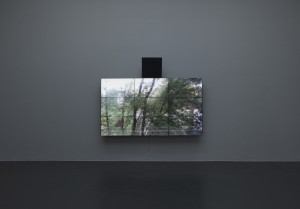
Romuald Kamakar, Anticipation (working title: Waiting for Sandy), installation view the German contribution in the French pavilion Venice 2013, courtesy Pantera Film GmbH. © Roman Mensing in cooperation with Thorsten Arendt, artdoc.de.
“In his documentary, feature, and conceptual films, the artist and Filmmaker Romuald Karmakar has devoted himself for three decades to the investigation in mechanisms of violence and mass phenomena, often exploring the perpetrators’ perspective and uncompromisingly focusing particularly on German history. As part of the German contribution at the French Pavilion, he shows the documentary 8. Mai (2005/2013), a documentary film shot during the large demonstration the Neo- Nationalist Party of Germany held on Berlin’s Alexanderplatz on May 8, 2005, on occasion of the 60th anniversary of the end of the Second World War. He also presents the film Hamburger Lektionen (Hamburg Lectures), 2006, in which the famous German stage and movie actor Manfred Zapatka, appearing in front of a neutral backdrop and speaking without emotion, recites the German translations of two sermons the Moroccan-born Salafi imam Mohammed Fizazi delivered in January 2000 at Hamburg’s Al Quds Mosque – the Muslim community center also frequented by the terrorists who took part in the September 11, 2001 attacks. Moreover, Karmakar screens several shorts he made for his personal film archive on YouTube and Vimeo over the past few years and has not published anywhere else. Some of them are animal films, shot at the Berlin zoo. Not unlike Ai Weiwei’s stools, the wild animals kept in cages and enclosures may be read as universal metaphors for life within a social system, an existence conditioned by external constraints and injunctions. Yet the Hamburg Lectures, which Karmakar calls a “German history,” as well as the documentary from the neo-Nazi demonstration in Berlin, which was also a manifestation of how the network of neo-Nazis operates internationally, provide quite tangible examples that today’s ideological identities evolve across borders between countries and elude classical national categories.” Susanne Gaensheimer in the foreword of the official publication of the German Pavilion at the Biennale di Venezia 2013.

Romuald Kamakar, 8. Mai (8th of May), 2005/2013 and Hamburger Lektionen (Hamburg Lectures), 2006, installation view the German contribution in the French pavilion Venice 2013, courtesy Pantera Film GmbH. © Roman Mensing in cooperation with Thorsten Arendt, artdoc.de
